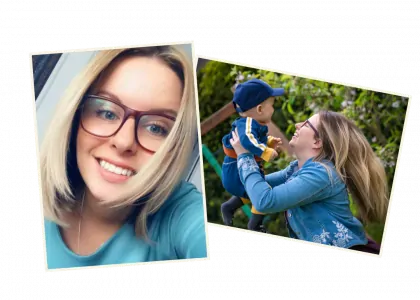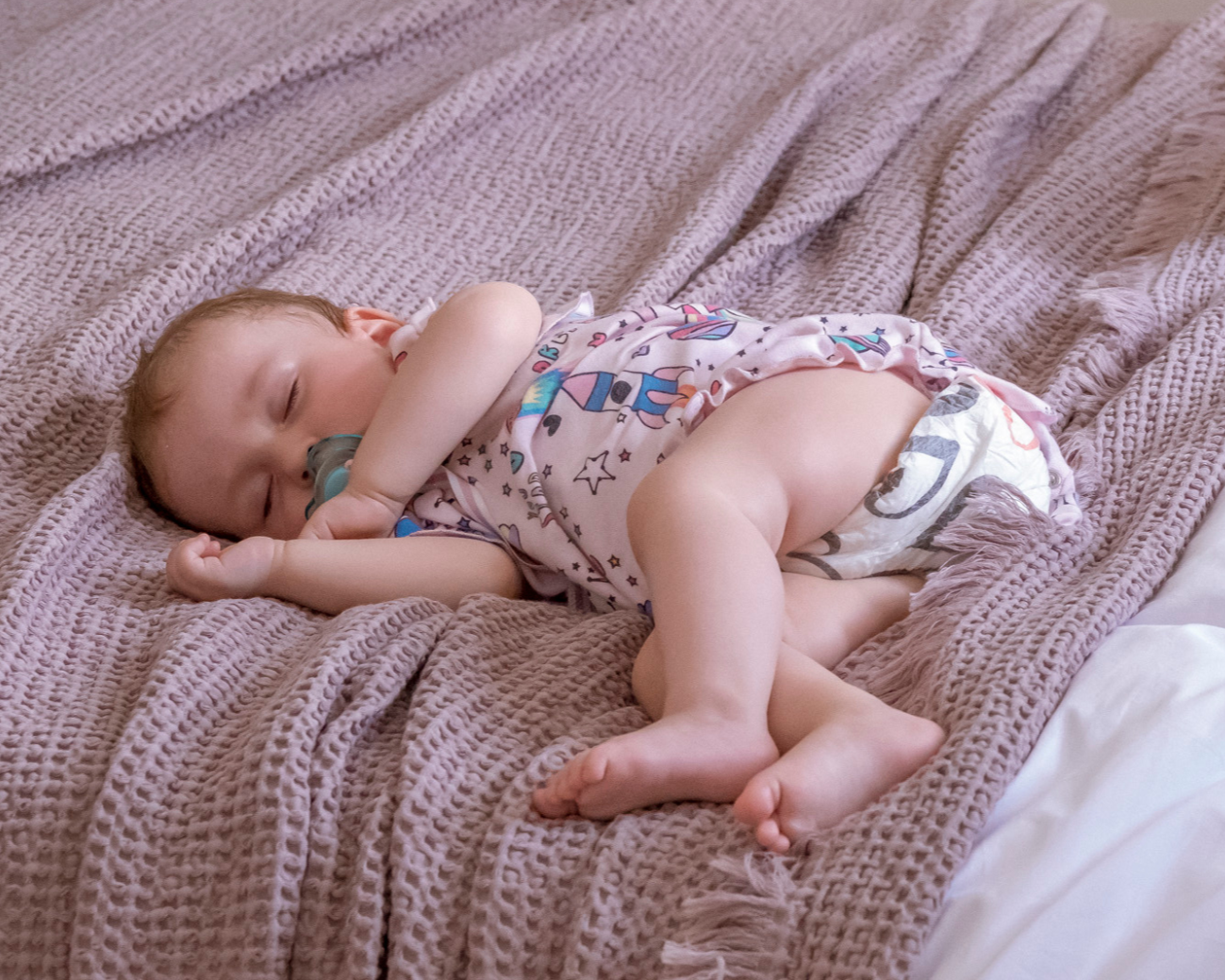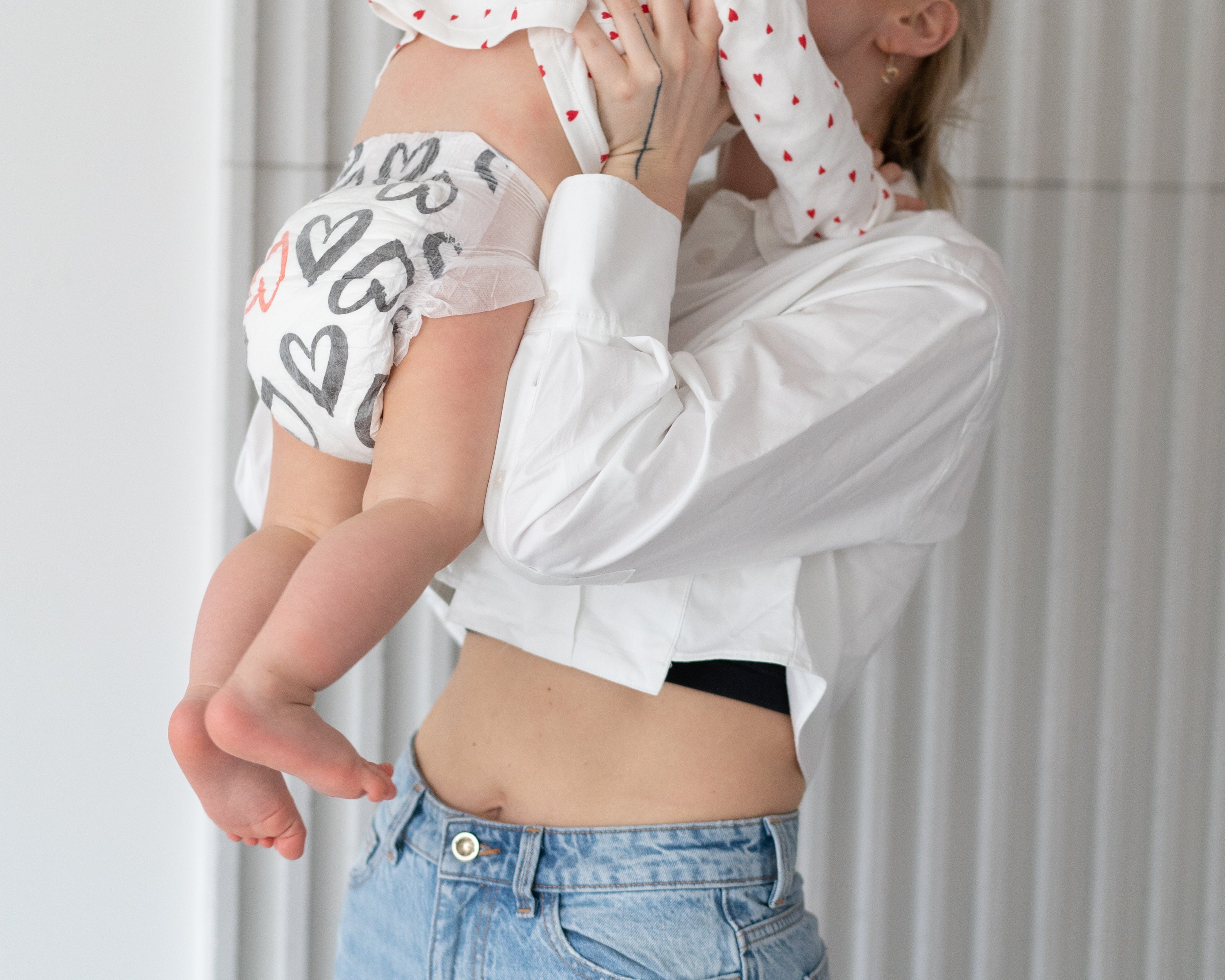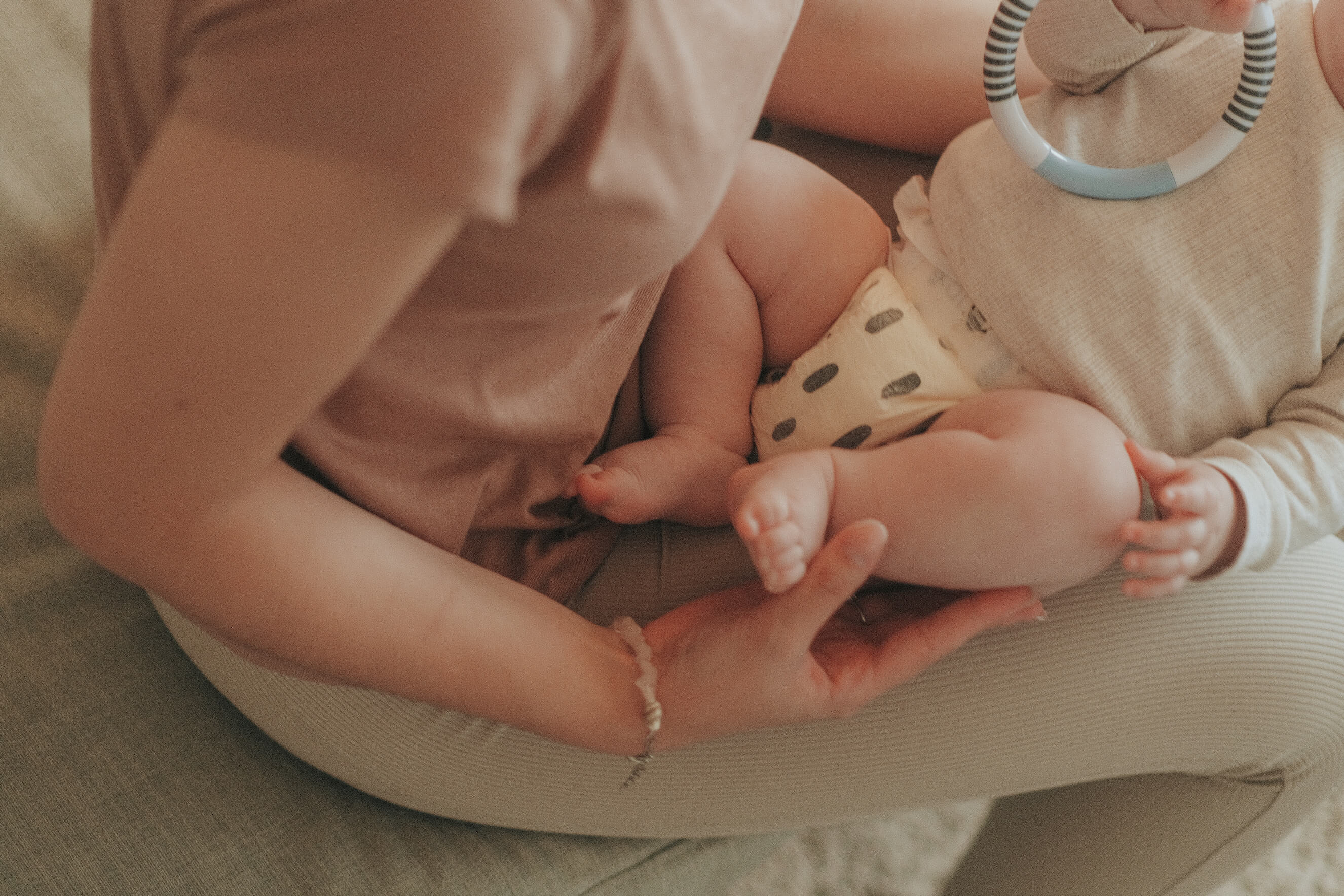Even though we all sleep, some of us take more time than others. And what about the sleep of babies! Almost every mother will confirm that she experienced a period with her child when he simply couldn't sleep. We will therefore discuss children's sleep thoroughly with Anna Růžičková, a sleep consultant for children under four years of age. In the first part, we will focus on everything that affects a baby's sleep and what mistakes parents make most often.
Anna, from my surroundings, I feel that babies who you put in a crib and they fall asleep on their own are really a minority. What can a mother do if she has a little insomniac at home?
The main and most important thing is for mom to be calm. Even if it seems impossible, try to find thirty minutes every day for yourself when you will do nothing, think about nothing and just enjoy it. It is also important that you do not blame yourself and do not feel your situation as a failure. It's normal that babies don't sleep the way we imagine or the way we do. Parents are always encouraged to learn that waking up is a defense mechanism for children. However, if the baby does not want to sleep at all, whether during the day or at night, or wakes up every hour at night, you need to consult an expert — a pediatrician or a sleep consultant. At Isla-Grace, we are taught that there is no sleep problem, but that there is something deeper behind the awakening, be it trauma or a health problem. I don't want to scare mothers with this, it can also be a tummy ache from new food, silent reflux, a short sublingual frenulum and others. So to sum it up, take it easy, take time for yourself, listen to your baby and meet his needs. And if you're not sure, consult an expert. We've been here ever since.
What do you think are the most common mistakes parents make when it comes to children's sleep?
The biggest mistake is made by our society, not by parents. It's crazy to me how the natural maternal and paternal instincts are suppressed and I'm glad that it's being talked about more and more and parents are starting to get support. Society gives us certain patterns, tells us what we should and shouldn't do and how it should be done. But in parenting, everyone should be self-confident, trust themselves and, above all, trust their intuition. I miss that in a lot of parents, but I don't think it's their fault. We are currently in a certain generational clash when it comes to raising children, and of course sleep is also connected to that. A lot of parents get advice from their parents and grandparents that they don't like. On the other hand, we shouldn't blame them because they didn't have as much knowledge as we do. There were one or two books on sleep training and few moms read them. Most asked their mom or pediatrician and then everything was set up differently. Here I would advise parents not to fight against it, to take it as something our parents want to help us with, talk to them about how it is now and try to respect each other. Believe me moms and dads, you will see how much easier it will be to breathe in parenthood!
What affects babies' sleep?
There are really a lot of these factors, but I can reassure you, because parents control most of them completely naturally and instinctively. Only sometimes a doubt comes up, a friend gives advice, mom gives advice, mother-in-law has a lot of objections, and then experiments begin that actually lead nowhere. Emotional well-being comes first, because you are influencing the baby's emotions. Sleep also affects the child's health. It is also the temperament of the baby, but also of its caregiver, most often the mother. It often happens that the child has a completely different temperament from the mother and a kind of conflict arises. It is therefore important to know what the child's temperament is and how we can work with it to understand it as parents. Another factor is developmental milestones where sleep regression often occurs. Sleep also affects pregnancy and birth, and related traumas. And of course, the daily regime and routines, breastfeeding/feeding and later feeding and eating, sleeping environment, parents' lifestyle and their upbringing, formulas and much more are important.
You mentioned developmental milestones. How does a child's sleep generally develop in the first year of life?
In the first year, our little ones get really busy. Everything you can imagine develops, and with it, of course, sleep. I always say that I definitely wouldn't want to repeat it now, and I'm glad that nature arranged it in such a way that we don't actually remember the first three years of our lives, even though we have all the events from this period stored and they affect us in adulthood. Within one year, a child goes through five sleep regressions — or rather progressions, because it is a desirable development that every child goes through. Growth spurts are also coming and the first teeth are growing. The baby starts to eat new foods. The sleep change also comes with developmental milestones, so at the same time as turning onto your tummy, crawling, climbing, walking and so on. Separation anxiety also often interferes with sleep, as children need more closeness and support from their parents. This is often when they move into the parent's bed. Sleep develops along with all these changes in overall development. In the first three to four months of life, the baby has a different sleep cycle than after the second regression, which is very important from the point of view of development, because children start to sleep similar to us adults. They often need to change the way they fall asleep, sometimes even the sleeping environment. I won't lie to you, it's a big ride for them, but you don't have to suffer through it, you can enjoy it.
You mentioned moving the child to the parent's bed. What do you think about the baby sleeping in the bed with the parents?
A baby's sleep with his mother is completely natural for him. When researchers started doing research on safe sleeping in the 1990s, they came up with the idea that co-sleeping is dangerous. At that time, there were huge campaigns against co-sleeping in the USA, Canada and everywhere else in the world, for example in the form of billboards where a child slept with a meat cleaver and it was stated here that co-sleeping is actually the same danger. However, these studies did not take into account other risks associated with co-sleeping, such as alcohol, drugs, smoking, obesity and others. As a result, it was not possible to find out whether co-sleeping or co-sleeping with a parent under the influence is really dangerous. So it has never been officially confirmed that co-sleeping is dangerous if all safety principles are followed. The latest research shows how co-sleeping, on the other hand, is beneficial for a child in building emotional bonds, in a sense of security, and how it can affect his behavior in adulthood. For breastfeeding mothers, it is also quite often a release from constantly getting up to go to bed, and thus a relief and more rest. Every day I see overcrowded cribs on social media and I always think that baby would be safer with mommy in bed. So I'm in favor of co-sleeping, but only if it suits all family members and it's safe.

About Anna
Anna Růžičková is a sleep consultant for children under the age of four. She herself has a one-year-old son, Jakub. For the past year, he has been intensively studying children's sleep and at the same time helping parents, either through his Instagram account @spanekmiminek or thanks to individual consultations. She is currently writing her first book about sleep and likes to unwind on maternity leave by reading books or writing articles for parents.




